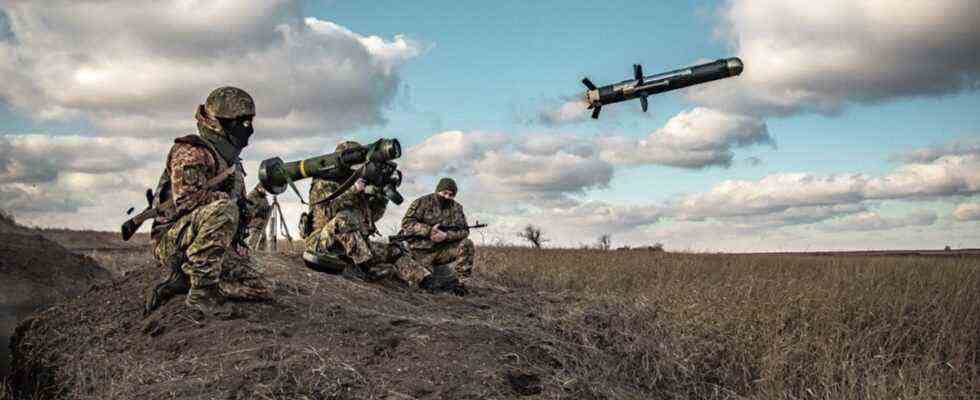Western secret services are convinced that the Russian troop deployment on the borders with Ukraine will continue unabated. “We assume that more than a third of the combat-ready Russian soldiers are there,” said a senior official of the Süddeutsche Zeitung. He put the number of soldiers at 106,000, slightly lower than Ukrainian numbers, which include Russian-backed separatists. In the past week, when Russian diplomats met with the US three times in different formats, a certain slowdown in troop deployments was noted. However, this is over and the intensity is still very worrying.
The US government has long made it clear that it considers a Russian attack on Ukraine to be a “real risk”. It is therefore not surprising that Washington is now allowing Estonia, Latvia and Lithuania to supply Ukraine with deadly US-made weapons. Estonia intends to javelin-Transfer anti-tank weapons, and Lithuania will be shoulder-launched stingers-Supply anti-aircraft missiles.
The Czech Republic’s new government is also considering selling ammunition and weapons to Ukraine, as Defense Minister Jana Chernochowá has said in an interview said: “If Ukraine needs our help, then we will do our best.” Between 2013 and 2020, i.e. before the most recent Russian escalation on the borders with Ukraine, only Poland among the EU countries had sold more armaments to Kiev than the Czech Republic. The sales of all EU countries were about armored vehicles and a total of 270 million euros.
Another figure shows how irrelevant these sales were over the long period: the next shipment from the USA to Ukraine alone, which includes ammunition and anti-tank missiles and will be launched in the next few days, is worth 175 million euros. The Balts know this too, of course, and are aware that their arms deliveries do not change the balance of power. However, they are among the biggest supporters of Ukraine’s close ties to the EU and NATO – both organizations have included the countries occupied by the Soviet Union for decades since 2004. In view of Moscow’s troop deployment and the dispatch of Russian soldiers to Belarus, which borders Lithuania and Latvia, plans to further increase military spending are now taking shape in the region.
Estonia wants more NATO soldiers in its own country
Estonian Prime Minister Kaja Kallas announced by 2025 an additional 380 million euros invest in the army. This corresponds to an increase in the defense budget of more than ten percent per year. In addition, Estonia becomes part of Israel more than 500 anti-tank guided missiles to buy. Kallas said there was no military threat to Estonia’s security from Russia yet and called for staying calm and confident “in nervous times”. However, the country is also investing more so that its own request for support from its allies is more credible.
In response to Russia’s annexation of Ukraine’s Crimea peninsula in 2014, NATO deployed multinational combat forces in Poland and the Baltic republics to deter Russia from attacking. Between 1,200 and 1,500 NATO soldiers are currently stationed in each country as part of the “Enhanced Forward Presence” (EFP) program, and Kallas has been calling for this number to be increased for weeks. While the Bundeswehr has taken the lead in Lithuania, Great Britain is sending most of its soldiers to Estonia. According to the Times London considers sending hundreds more soldiers to Estonia and Poland. The fact that the British are sending light anti-tank weapons to Ukraine is met with great approval in Eastern and Central Europe.
There, Germany’s refusal to support Kiev with weapons is causing just as much frustration as French President Emmanuel Macron’s demand that the EU develop its own proposals for a European security architecture and discuss them with Russia. Since the EU must be unanimous on foreign policy issues, Macron’s proposal has no chance – especially not in the current crisis. However, the announcement from Paris was positively received to send soldiers to Romania, if an international EFP association of NATO should be established there.
Denmark wants to help Ukraine with a 22 million euro package to adapt its army to NATO standards. As a sign of solidarity with Ukraine, Spain, which will host the NATO summit in Madrid at the end of June, is sending the frigate Blas de Lezo to the Black Sea earlier than planned. Defense Minister Margarita Robles said the warship will soon be leaving port, repeating the alliance’s position: “Russia cannot tell any country what to do.”

